Perhaps nothing better exemplifies the concept of mixing business with pleasure than the market category of Sports, Entertainment, Home and Leisure. From Entertainment and Sports Complexes, to Luxury Resorts and Hotels. This category also encompasses Fitness Clubs and Spas, Restaurants and Bars, Museums and Libraries. It is here where we gather in large numbers in order to balance our work life with some well earned, meaningful down time. It is in these centres where we escape from reality to root for the home team, get cultured, eat and drink, get a work out or get pampered.
Acoustical Consulting Expertise
HGC understands the unique set of acoustical consulting challenges that each of these areas creates due to the specific nature of the activities and operations being undertaken within them. We have spent nearly two decades building our expertise while providing noise, vibration and acoustics solutions for Sports, Entertainment, Hotel & Leisure Centres across Canada, the United States and around the world.
Know-how for Venues both Large and Small
Our experience includes sports facilities, theatres, hotel and leisure centres both large and small. We have been involved in the acoustical design of over 100 auditoriums, lecture halls, performance theatres, sports arenas and congregation spaces, including a 2000 seat indoor sports stadium and a 1200 seat theatre-style worship sanctuary.
We work with architects, designers and project managers to establish appropriate and effective benchmarks that attain desired acoustical performance goals.
Acoustics for Mixed-used Complexes
Many venues today function as mixed-use complexes featuring complimentary services like food concessions and retail zones. They also include administration areas such as offices, board and conference rooms, and multi-media centres.
As the acoustical consultants lead on many of these type of projects we understand how to identify appropriate acoustic criteria for speech intelligibility for large arenas and auditoriums, performing appropriate analysis, and providing recommendations related to architectural finishes, configurations, etc., to achieve an acoustic environment suitable for each venue.
Our experience with Sports, Entertainment & Leisure projects allows us to quickly identify locations where specific acoustic separations will be required for acoustical privacy or to limit sound transmission between specific locations:
- Hotels/Resorts: Typical areas of concern include acoustical separation of guest suites, conferences rooms and administrative areas from mechanical zones, fitness/aquatic centres and other amenity areas.
- Entertainment Centres: Attention is given to the acoustical separation of rehearsal and performance spaces from mechanical and administrative zones.
- Sports Complexes: Points of concern include acoustical separation of event, training and concession areas from mechanical and administrative zones.
Environmental Noise and Vibration
Our team also has extensive experience in assessing and mitigating the impact of environmental noise and vibration from roads, rail or air transportation on a building or venue. We have designed a special façade and roof to limit the impact of aircraft noise on an airport hotel and conference centre. Our personnel have even gone so far as to isolate an entire building to shield its broadcast studios from the effects of subway ground-borne vibration. We also have the resources and capabilities to conduct vibration monitoring during construction.
LEED Certified buildings
In addition, we have performed acoustical consulting for a variety of Green building projects, which have become more prevalent in recent years. There are special challenges to developing good practices in acoustics for LEED Certified buildings, and we are thoroughly familiar with the acoustical implications associated with their energy-saving systems and design.
HGC offers consultation services relating to acoustics, noise and vibration at all stages of a project
During Planning
Environmental Noise and Vibration Studies
In some municipalities, you may be required to submit an environmental noise impact study, especially if the place of worship is in close proximity to a major traffic corridor. These feasibility studies examine the noise impact of nearby roads, highways, rail and subway traffic on the proposed site and its future congregants. As well, the study assesses the potential effects of vibration from adjacent subway or railway lines on a building’s foundation and structure. A study will also look at surrounding industries, buildings or activities nearby for potential stationary sources of noise or vibration that might impact the planned site. Additionally, we will review any early details the project team can provide on the site plans, looking for new noise and vibration sources associated with the design such as such as rooftop HVAC units, generators, etc, that may in turn impact surrounding buildings and environments. These aspects are considered in a preliminary fashion in the context of a study and only general recommendations for mitigation of environmental noise and vibration are offered at this juncture. These may include general recommendations relating to building facade and glazing components, mechanical ventilation or air conditioning.
During Site Visit and Preliminary Drawing Review
If the project is an expansion or renovation, we will visit the existing building, and conduct measurements of the levels of reverberation and background sound. In all cases, we will discuss expectations with the architect and planning ream in terms of the types of venue activities anticipated and the acoustical requirements. Based on our discussions, we will identify criteria in terms of reverberation time, level of acoustical privacy, background sound levels as appropriate for the various acoustically sensitive spaces which may be included as part of the project such as. We will also provide recommendations for obtaining acceptable levels of privacy between areas. We will review the preliminary architectural drawings prepared with regard to the proposed room volumes, geometry and surface treatments to develop an opinion of the expected acoustical qualities. Particular attention will be given to the main venue. Conceptual recommendations will be provided to give guidance during design/development with regard to the acoustics in these spaces to achieve the reverberation criteria and good sound system performance. These will include recommendations concerning the most appropriate type of sound reinforcement system and loudspeaker placement. We will also provide acoustical criteria for background sound levels from the HVAC systems. The amount of background noise is another very important part of the perceived and achieved “acoustics” of a space and is important for privacy and freedom from distraction. These criteria would be used as targets by the mechanical consultant and designer.
During Development
Before the design drawings are complete, we will develop an analytical computer model of the interior acoustics of the main venue. The model will be used to predict, through calculation, the expected levels of reverberation.The predicted acoustic characteristics will be evaluated with respect to the reverberation criteria to address speech intelligibility and musical quality. Where necessary, we will provide recommendations to optimize the interior acoustics and sound system performance with regard to the location and specification of interior surface treatments. A concise report will be prepared summarizing the results of the analysis and recommendations. Sketches, material specifications and the names of suppliers will be provided as necessary.
Sound System Specification
If required we will prepare a specification for a sound reinforcement system. To do so we first determine the requirements of the sound system and the type of activities and programs for which it will be used. We will then prepare a technical specification for use by the developers, architects or builder in obtaining competitive bids for the design/supply/installation of the system and then be responsible for conducting the tender process and contract administration.


Etobicoke Civic Centre
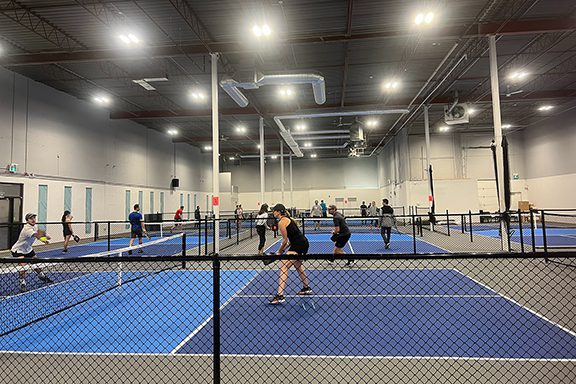
YYC Pickleball, Indoor Pickleball Courts, Calgary
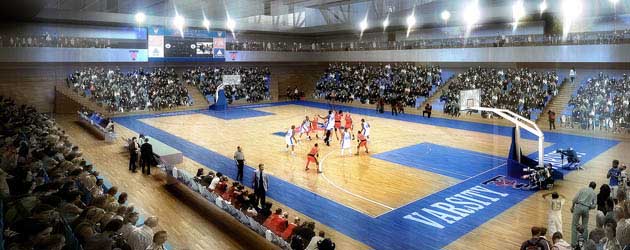
Goldring Centre for High Performance Sport
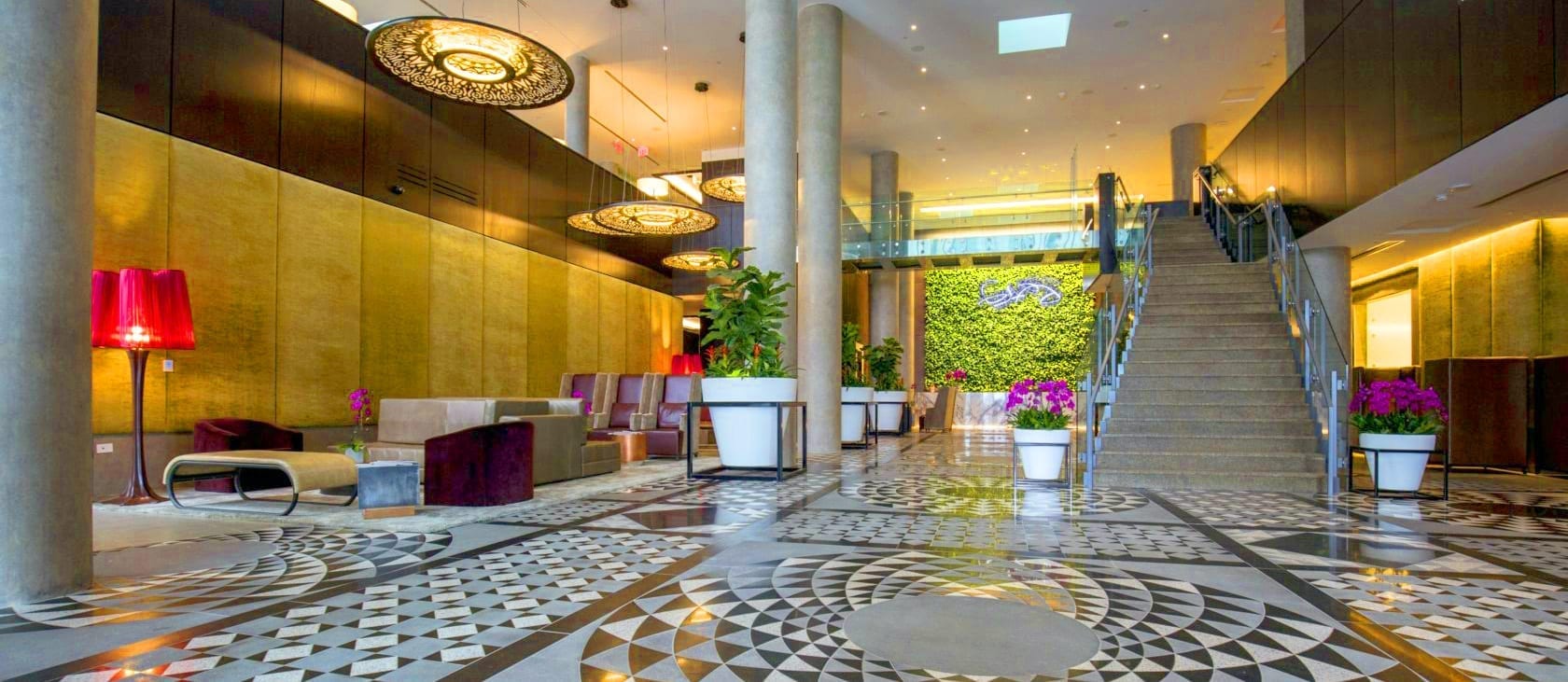
Hotel X and 10XTO Athletic Club
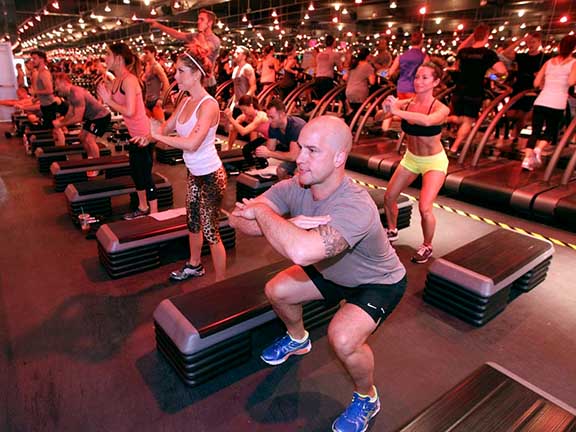
Barry’s Bootcamp, Toronto, Vancouver

Paramount Canada’s Wonderland
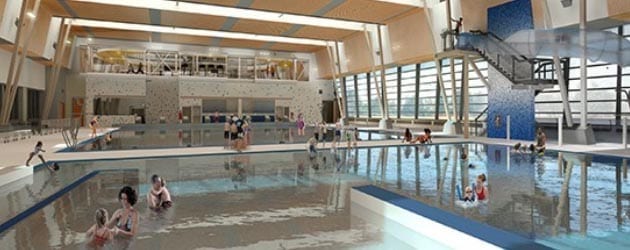
Gore Meadows Community Centre, Phase 2

Metropolitan Bible Church

Anglestone Tournaments

Leviathan Roller Coaster
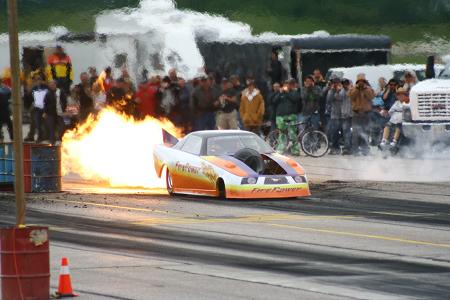
Northern Motorsports Neighbourhood Event Park
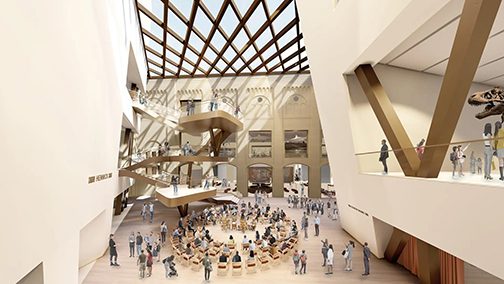
Royal Ontario Museum Renovation Project

AGO’s Dani Reiss Modern & Contemporary Gallery
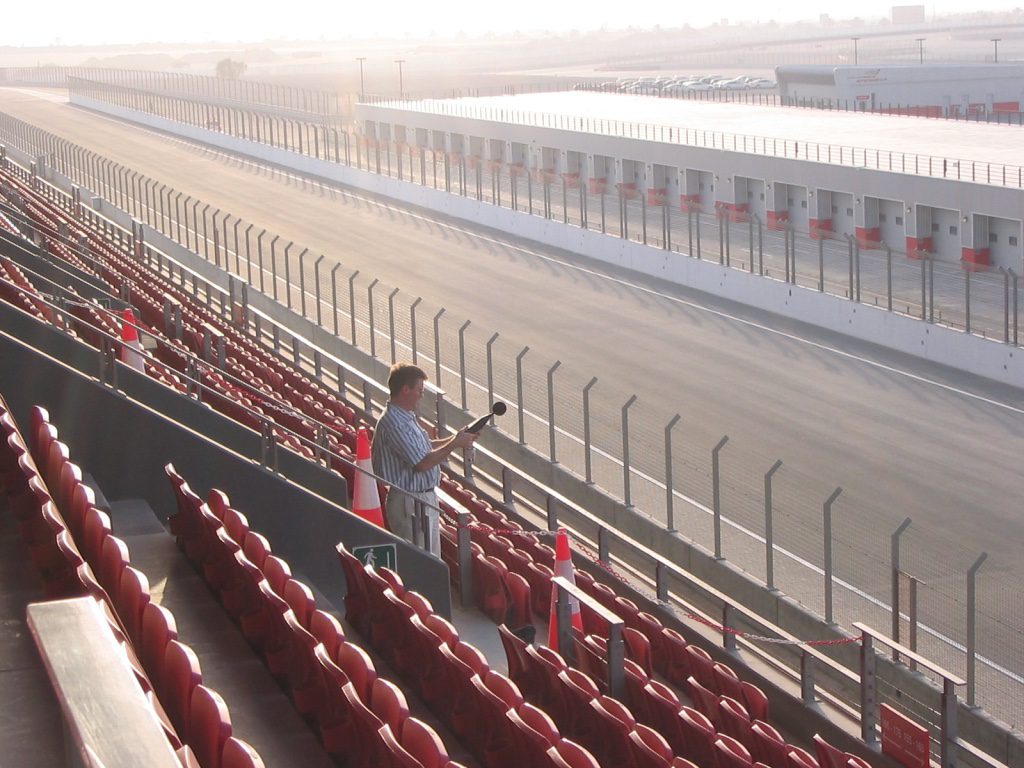
Dubai Motor City, Autodrome, Dubai, UAE
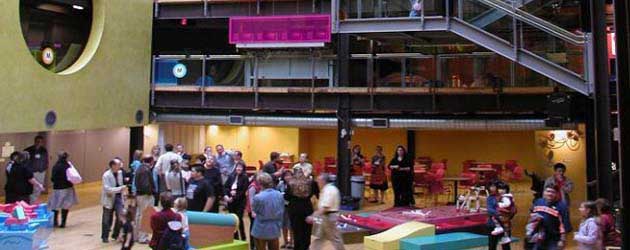
Waterloo Regional Children’s Museum
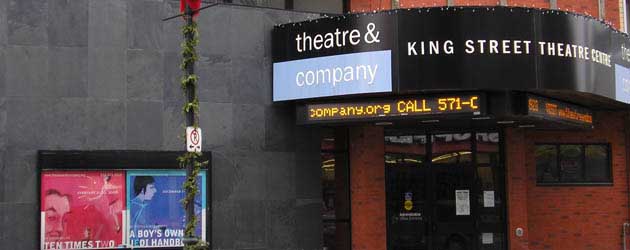
King Street Theatre Centre
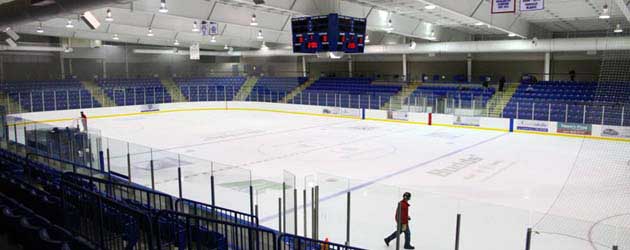
Sixteen Mile Sports Complex
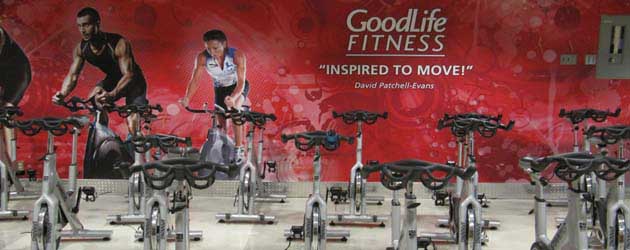
Goodlife Fitness Clubs

Fort Wellington National Historic Park

The Noise & Vibration Challenges of Fitness Centers in High-Density Neighborhoods
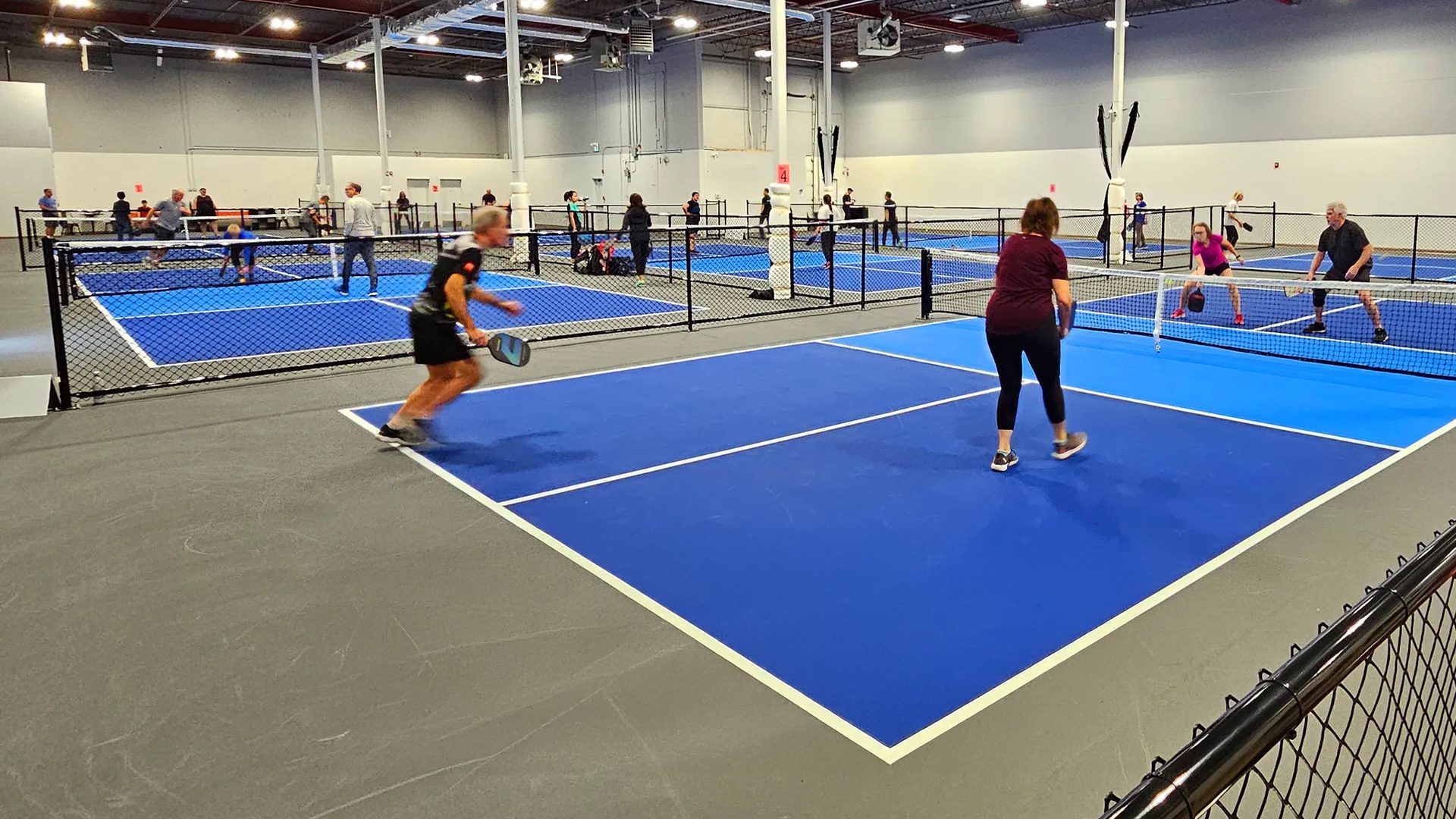
Noise Control Design Strategies for Indoor Pickleball Courts
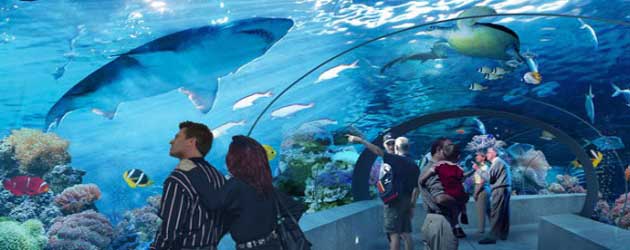
Rail Noise and Vibration Impact on Aquarium Sea-life
Who We Help
Our Markets
Engineers, Architects, Planners, Environmental Health & Safety Specialists, Developers, Owners/Operators and Property Managers in sectors including:
Need Answers?
Reach out to our acoustical consultants now.